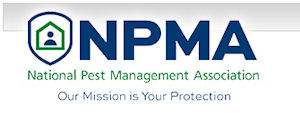 FAIRFAX, VA—More than nine out of 10 allergists surveyed (97 percent) believe a pest-free home is an important step in preventing asthma and allergy symptoms, according to a recent survey conducted by the Asthma and Allergy Foundation of America (AAFA) supported by a grant from the National Pest Management Association (NPMA). The survey was conducted among medical professionals at the 2014 Annual Meeting of the American Academy of Allergy, Asthma and Immunology (AAAAI) in March 2014 in San Diego. The findings are being released as part of May being National Asthma and Allergy Awareness Month, to remind homeowners that many pest-related asthma and allergy triggers can be avoided by practicing simple prevention measures.
FAIRFAX, VA—More than nine out of 10 allergists surveyed (97 percent) believe a pest-free home is an important step in preventing asthma and allergy symptoms, according to a recent survey conducted by the Asthma and Allergy Foundation of America (AAFA) supported by a grant from the National Pest Management Association (NPMA). The survey was conducted among medical professionals at the 2014 Annual Meeting of the American Academy of Allergy, Asthma and Immunology (AAAAI) in March 2014 in San Diego. The findings are being released as part of May being National Asthma and Allergy Awareness Month, to remind homeowners that many pest-related asthma and allergy triggers can be avoided by practicing simple prevention measures.
The study, which included nearly 500 allergists, was conducted to assess physicians’ views on pests and their recommendations to patients with sensitivities to pest allergens. Many common household pests, such as cockroaches and rodents, contain potent allergen proteins that can cause reactions and symptoms in certain asthma and allergy patients. According to AAFA, 63 percent of homes in America contain cockroaches and their particles — saliva, droppings and decomposing body parts — so it is recommended that homeowners take steps to rid their homes of these pests.
“The health threats posed by pests like cockroaches, rodents and stinging insects are serious but can be reduced by taking action against pest infestations,” says Missy Henriksen, vice president of public affairs, NPMA. “We’re encouraged to learn that the majority of allergists recommended that their patients with pest problems consult with a pest professional to help eliminate pest allergens in the home.”
“Allergies are a chronic disease of the immune system, and people with a cockroach allergy should take steps to reduce their exposure to cockroach allergen,” says Mike Tringale, senior vice president of AAFA. “We encourage patients with these types of sensitivities to seek advice from their doctors on the best plan for treatment and prevention.”
Asthmatic adults and children exposed to cockroach allergens experience symptoms when their airways tighten, inflame, or fill with mucus.
“Common asthma symptoms include coughing, especially at night, wheezing, chest tightness or pressure, and shortness of breath,” explains Dr. Jorge Parada, medical spokesperson for the NPMA. “Controlling allergies and asthma is a two-fold process, so it’s important for a person suffering from these symptoms to see his or her doctor and contact a qualified pest professional to recommend a course of action to eliminate the problem.”
The AAFA survey of allergists also revealed the following:
- Nearly 8 out of 10 allergists surveyed (76 percent) say, aside from dust mites, cockroaches are the most problematic household pest for patients suffering from asthma or allergies. More than half of allergists surveyed (57 percent) rank rodents as the second most problematic, and nearly two-thirds (63 percent) rank stinging insects as third.
- More than 9 out of 10 allergists surveyed (95 percent) regularly advise their patients to reduce their exposure to pest allergens in their homes.
- Nine out of 10 allergists surveyed (90 percent) would recommend that a patient with a pest problem consult with a pest management professional.
When asked to provide open-ended comments about advice they give to patients who have a sensitivity to cockroach allergen, the most frequent advice cited by allergists surveyed was to contact or hire a pest management professional.
Leave A Comment